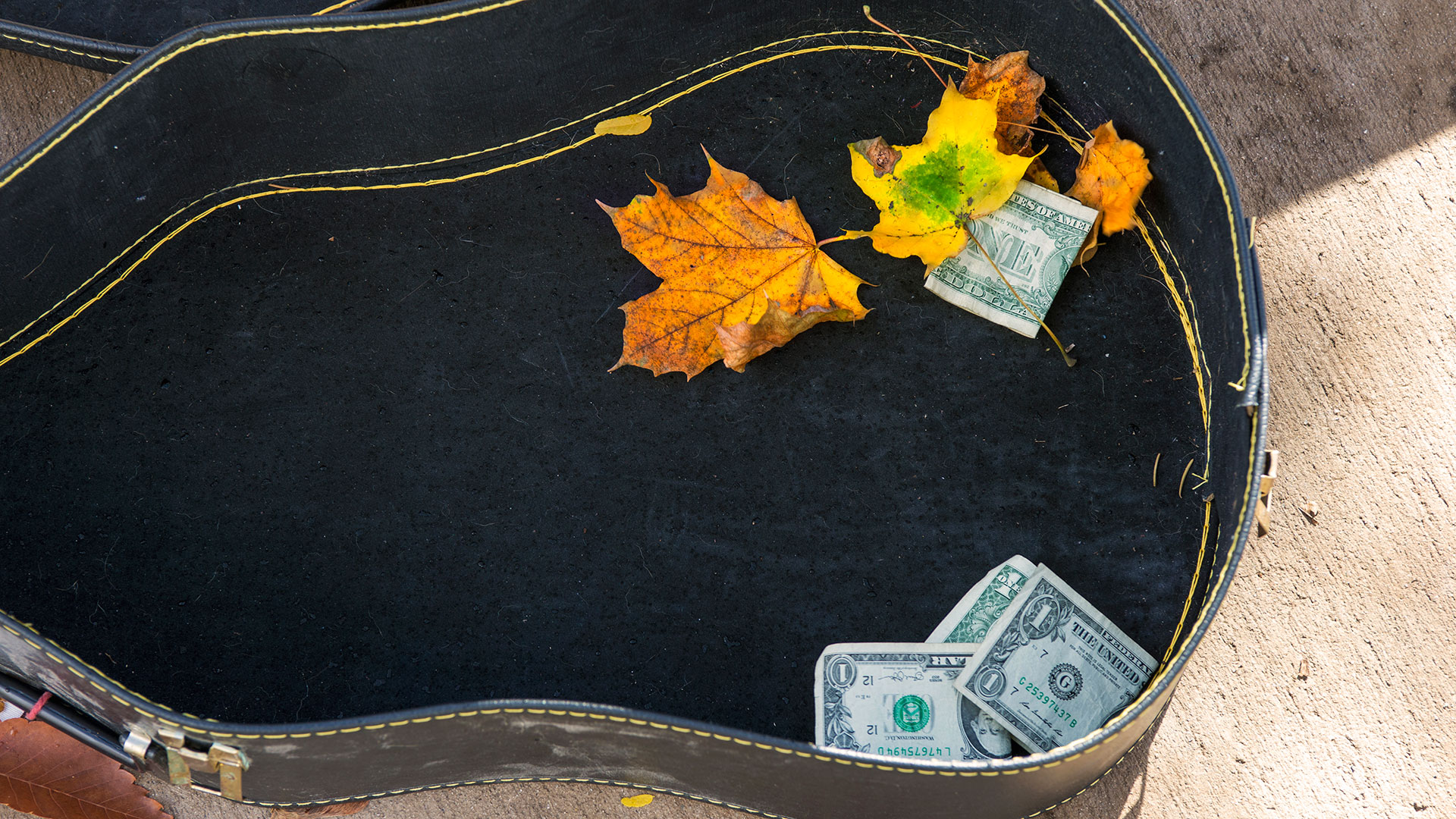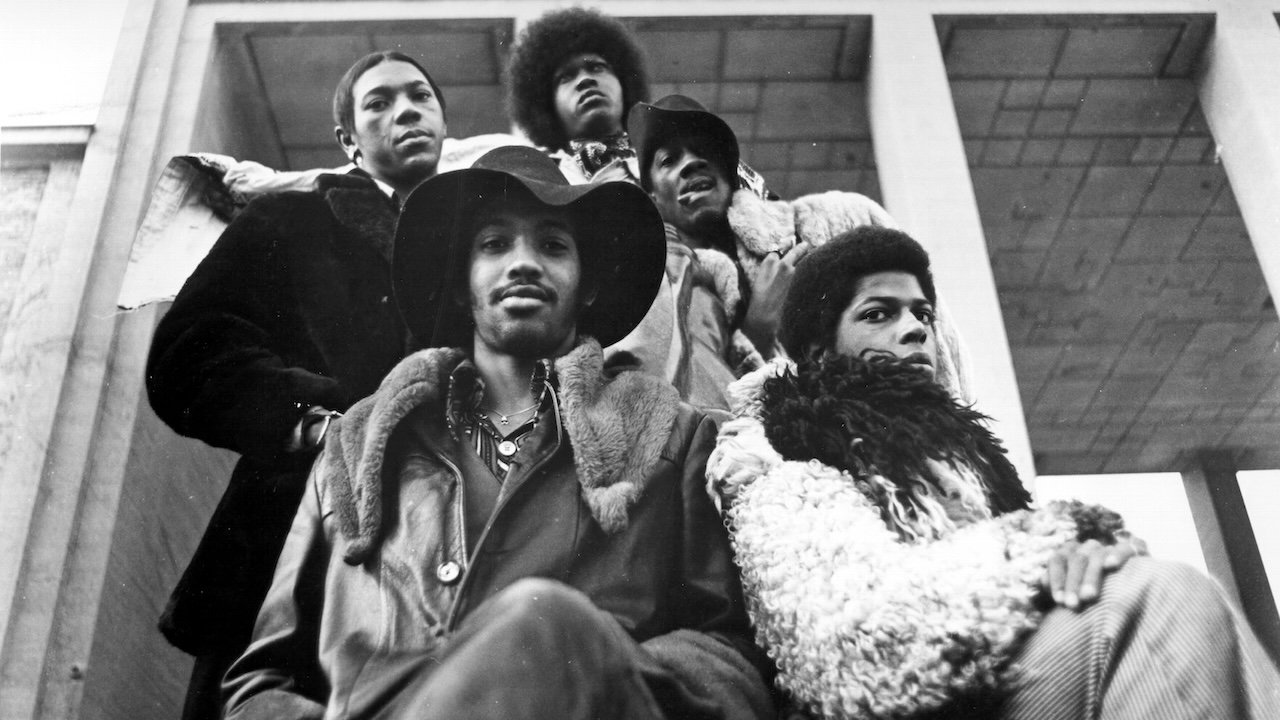Tired? Bored? Small hands? These are the top 8 excuses for avoiding guitar practice – and how to beat them
A revealing (and possibly triggering) compilation of excuses for not practicing guitar

All the latest guitar news, interviews, lessons, reviews, deals and more, direct to your inbox!
You are now subscribed
Your newsletter sign-up was successful
Excuses – we’ve all been there. We know we should practice, but sometimes the disposition just isn’t there.
Our pretexts can include everything from, “I don’t have time,” to “my hands are too small” or “my strings need changing” – and we get caught in a perpetual, excuse-making cycle that prevents us from practicing guitar all together.
But why? Why, friends? If we love it so much, where does all this rubbish come from? And what does it really mean?
I have a theory, so to expose our collective and comical excuses, and debunk any myths that surround them, I’ve compiled the ones I’ve heard or used the most – and, perhaps most importantly, thought about why we use them.
Excuses are music to your fears
Let’s say you’ve convinced yourself that you’re serious about guitar, but even then, you find yourself not practicing enough to see results the way you want to.
Or maybe you’re just lazy – that’s not out of the question. What we’re talking about here is serial excuse-making – the kind that results in an epic display of self-sabotage, despite you professing your unwavering love for guitar.
When we make constant excuses, this can be a sign of us protecting ourselves from something that induces fear
So the real question you have to ask yourself when you come up with your excuse of the day is, what am I really avoiding?
All the latest guitar news, interviews, lessons, reviews, deals and more, direct to your inbox!
When we make constant excuses, this can be a sign of us protecting ourselves from something that induces fear or gets us out of our comfort zone.
Let’s use failure as an example. The idea of playing in public, uploading a video of yourself playing, or being afraid of not sounding good enough, can elicit all sorts of creative excuses.
Another reason you make constant excuses is you’re not as into it as you thought you were. Because when you really want something, you don’t come up with a whole laundry list of reasons to not do it – you just do it.
So all judgment aside, let’s explore these evasive, pervasive, but chuckle-inducing statements.
1. I don’t have enough time

Ahhhh, the classic, quintessential, excuse for pretty much anything we don’t feel like doing.
It’s not that you don’t have enough time, it’s that you don’t make enough time. Simply put, you make time for the things that are important to you.
So instead of saying you don’t have enough time, own up to the fact that you don’t make enough time. Instead, designate a specific amount of time per week to practicing, and stick to it religiously.
Meaning, set the time. Because you run your schedule, not the other way around.
2. I’m not motivated

Where do you think motivation comes from?
Experience has taught us that motivation is not something that magically appears out of thin air; it’s discipline in disguise. You generate it by developing habits over time.
When you’re feeling unmotivated, go back to source... Think about why you decided to learn guitar to begin with
When you’re feeling unmotivated, go back to source. Check yourself. Think about why you decided to learn guitar to begin with. Your answers may include, “I love the way it makes me feel,” “I want to use it to attract a partner,” or, “I want to be a famous musician,” etc.
When you remind yourself of the motive behind your desire to play guitar, you’re likely to get back on track with your motivation.
Just remember that your motivation is only as good as your discipline.
3. I’m too tired

Being tired is a fact of life. We all have demanding jobs or schedules that suck the energy out of us, and sometimes make us too tired to practice.
I’ve been there, too. But the thing is, you may not be tired. You may be uninspired.
A quote by Dutch speaker Alexander den Heijer sums it up nicely, “You often feel tired, not because you’ve done too much, but because you’ve done too little of what sparks a light in you.”
You say you’re too tired to play guitar, but in reality you may be too tired because you’re not playing enough guitar.
In other words, learn what recharges and invigorates you. Assuming the answer is guitar, make more time to play, and your energy can shift completely.
4. My hands are too small

Or similar derivatives, such as “my hands don’t bend that way,” or “I have no hand coordination, “my fingers are too chunky,” or “it hurts my fingertips.”
Anytime I hear this, I think, “How about not having any hands at all?”
Players like Tony Meléndez and the late Mark Goffeney were born without arms, and didn’t let that stop them from pursuing their dreams. Instead, they used their toes. Goffeney even toured with one of the best-selling acts in Latin music, Maná.
But let’s just say you do have hands that run on the smaller side. Nowadays there are tons of guitars in the market with smaller necks and bodies.
And side note – having big hands won’t necessarily mean you’ll be better than those with small hands. Just think of tiny guitar-wielding kids who shred. They’re successful in part because they don’t have as many self-imposed limitations we develop as adults.
5. I'm too old
Guitars don’t have an expiration or best-by date, meaning there’s no such thing as it being too late to learn or play. If that were the case, Willie Nelson and Keith Richards would’ve retired decades ago – and America’s Got Talent star John Wines would not have gone viral.
The exceptions to this are physical, age-related ailments that prevent you from playing, like crippling arthritis (although, even then, there can be ways to adapt the instrument – just ask Steve Morse). But when the obstacle is in the mind, it’s time to rewind.
There is a legion of successful musicians who started “late,” including Wes Montgomery, Sister Rosetta Tharpe, Johnny Ramone, Chuck Berry, James Lewis Carter Ford, and so on.
Next time you catch yourself saying you’re too old, whether for learning or performing, ask yourself, “Is it really that I’m too old, or is it my perception that I am too old? Am I too concerned about what others say or think about me?”
You also may be forgetting an important detail: old does not mean obsolete. You’re still alive, my friend. And you are so worthy.
6. I can’t afford it

Can you afford close to free? Lessons are available in abundance online at zero cost. And nowadays you can get a budget guitar for cheap or in payments.
When you fervently want something, you figure a way out. You could borrow one, barter, go to a pawn shop, or save up for a starter model in a month by forgoing your daily coffee allowance.
Instead of saying guitar is too expensive, ask yourself, “Is it my perceived value that needs a closer examination? Is it really too expensive, or do I maybe not feel like it’s as important as my other hobbies?”
Expensive does not mean impossible. It just means you might have to get creative in how you obtain your guitar or guitar lessons.
7. It’s too hard

No activity will be the easiest thing in the world if you go into it thinking it’s impossible. Guitar is only as hard as you believe it to be, and it generally gets less difficult with two magic words that start with the letter ‘p’ – and procrastination is not one of them. It's practice, and perception.
Your mind is going to play all sorts of tricks on you when you’re just getting started. You’re challenging your mind and body in new and remarkable ways
Your mind is going to play all sorts of tricks on you when you’re just getting started. You’re challenging and stimulating your mind and body in new and remarkable ways. Your brain is going to want to get lazy and complacent and go back to its comfort zone by eliciting any or all of these excuses.
Sure, guitar isn’t the easiest, but it’s absolutely worth the effort. I’ve never met anyone who said they regret learning guitar – ever.
Instead of saying it’s too hard, ask yourself, “Is it really too hard, or am I being hard on myself? Are my expectations realistic?”
Allow yourself to experience the discomfort of not sounding great at the beginning, so you reach the point where you become hooked because of the results you were able to achieve. You’ll thank yourself later.
8. I’m bored

This can happen to even the most seasoned of players. You love the guitar but you’re not in love with the guitar. You’re past the honeymoon phase and you’re stuck in a rut.
Try getting your guitar set up for a brand-new feeling
Maybe you’re frustrated because you can’t learn fast enough, or perhaps you’re just bored with playing the same songs.
Whatever the reason may be, there are ways out. Try getting your guitar set up for a brand-new feeling. Or, how about a new tuning? A different chord or scale? A capo? Or maybe a new electric guitar all together (hello, G.A.S.).
Look at the material you’re using. Learn new songs or something from another genre. If you’ve only ever played by yourself, look for other people to jam with.
Being bored is understandable as long as you know that it’s a temporary feeling, and not a life-sentence. Unless you let it be.
Take the dread out of, er... ‘dreadnought’
It’s called playing guitar. It should be fun. The excuse that we resort to doesn’t matter as much as the actual meaning behind it.
The aforementioned excuses, and others – like I’m tone deaf, I’m not musically inclined, I don’t have a musical bone in my body, no-one in my family plays, I’m a perfectionist, I’m more of a sports person – mean the same thing.
Which brings us back to the original question: how badly do you want it?
That’s for you to decide. We’re just here to make you mindful, remind you why you picked it up in the first place – and let you know that that you’re better off for sticking to it.
Online guitar lesson recommendations
Below, you'll find our favorite online guitar lessons services right now. These are our top picks and better yet, there are some great offers available for Guitar World readers, too!
1. Fender Play: 50% off an annual subscription
Fender Play is one of the highest-quality and most rewarding platforms for learning the guitar online, and it's constantly evolving with new lessons, courses and songs added regularly. It’s ideal for total beginners, with guided paths and lesson plans ensuring you’ll become proficient in what you want to learn.
Fender is currently offering 50% off an annual plan for all Guitar World readers, dropping the price from $149.99 to just $74.99 for the whole year – that's just over $4 per month. Just add the code guitarworld50 at checkout to see your discount.
2. Guitar Tricks: Get your first month for just $1
Guitar Tricks has developed their content over the last 25 years and with over 11,000 lessons and more than 900 song tutorials, Guitar Tricks has a lot more to offer intermediate players than many of its counterparts. They also offer a 60-day money back guarantee if you're not totally into it.
Enjoy your first month of Guitar Tricks for a single buck at this link and start improving your playing for way less than you'd pay for a cup of coffee. You'll get a free gift as part of the deal, too.
3. TrueFire lessons: Save 30% with code GWTF30
TrueFire has more lessons, tabs and jam tracks than you’ll ever realistically need (like over 50,000), along with a selection of well-respected teachers to learn from. We particularly like the slow-mo and looping features, where you can single out a tricky passage and have it repeated slowly until you nail it.
TrueFire also offers lessons taught by industry-leading teachers, Grammy Award-winning artists and world-class touring musicians. In case that wasn't a good enough reason to sign up, you can save 30% off an All-Access subscription and all courses with the exclusive code GWTF30.
4. Simply Guitar: Save 20% on lessons
Simply Guitar proves that learning guitar doesn't have to be complicated, and practice time need not be dull. It's a friendly iOS/Android app with a fun gamified approach, that holds your hand all the way, from first asking you whether you even own a guitar, right up to teaching you how to master the fretboard.
Right now if you sign up for a year you can save $30, dropping the annual cost from $150 to just $120. At $10 per month after the discount this is amazing value.
Beginner player? Here’s our pick of the gear you need to get started
- Explore the best acoustic guitars for beginners
- Or plug in with the best beginner electric guitars
- The best guitars for kids: top electrics and acoustics for children
- Best beginner guitar amps: top guitar amplifiers for newbies
- The best beginner classical guitars
- Best beginner bass guitars: four-string favorites for newcomers
- Guitar accessories for beginners and beginner guitar gear essentials
- Enhance your playing experience with our pick of the best guitar apps
A classically trained guitarist with a soft spot for metal, Pauline France is synonymous with all things writing, guitar and public relations – she is Guitar & PR. Her career in M.I. spans more than 15 years, working in Fender Musical Instruments Corporation’s communications departments, as well as being a Fender Play Instructor and on-camera personality for Fender Premium Audio.





